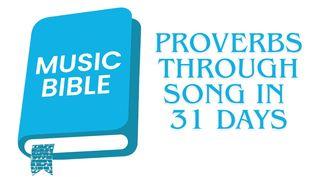1 Samuel 8-15: The Rise and Fall of a Kingنموونە

Obedience Is Better Than Regret
By Romina Chevren
"As Samuel turned to leave, Saul caught hold of the hem of his robe, and it tore. Samuel said to him, ‘The Lord has torn the kingdom of Israel from you today and has given it to one of your neighbors—to one better than you. He who is the Glory of Israel does not lie or change his mind; for he is not a human being, that he should change his mind.’ Saul replied, ‘I have sinned. But please honor me before the elders of my people and before Israel; come back with me, so that I may worship the Lord your God.’ So Samuel went back with Saul, and Saul worshiped the Lord. Then Samuel said, ‘Bring me Agag, king of the Amalekites.’ Agag came to him in chains. And he thought, ‘Surely the bitterness of death is past.’ But Samuel said, ‘As your sword has made women childless, so will your mother be childless among women.’ And Samuel put Agag to death before the Lord at Gilgal. Then Samuel left for Ramah, but Saul went up to his home in Gibeah of Saul. Until the day Samuel died, he did not go to see Saul again, though Samuel mourned for him. And the Lord regretted that he had made Saul king over Israel."—1 Samuel 15:27–35 (NIV)
This passage is a sobering conclusion to Saul’s kingship, a story filled with moments of disobedience and missed opportunities to honor God. Earlier in the chapter, Saul had been given a clear command: to completely destroy the Amalekites and their possessions as an act of judgment from God. But Saul, driven by pride, fear of the people, and his own agenda, partially obeyed. He spared King Agag and kept the best livestock, rationalizing his actions as an offering for God.
When confronted by Samuel, Saul initially denied his wrongdoing, shifted the blame, and attempted to justify his actions. But partial obedience is still disobedience, and Saul’s failure to follow God’s command had far-reaching consequences. Samuel’s declaration, “The Lord has torn the kingdom of Israel from you today,” marked the beginning of the end of Saul’s reign. The torn robe symbolized the reality that God would give Saul’s kingdom to another—someone who would follow His heart fully.
One of the most poignant aspects of this passage is Saul’s response after being confronted. Instead of genuine repentance, Saul’s primary concern was saving face before the people. He said, “Please honor me before the elders of my people and before Israel.” His focus was still on appearances rather than a true heart change. This is a stark reminder of how pride and fear of others’ opinions can keep us from fully surrendering to God.
Samuel, grieving over Saul’s failure, carried out what Saul refused to do—he executed King Agag, fulfilling God’s command. Samuel’s grief over Saul’s disobedience reveals the pain and sorrow that come when leaders fall short of their God-given calling. Even though Samuel never saw Saul again, his mourning reflects the deep loss of potential and the brokenness that results from rebellion against God.
This story challenges us to examine our own hearts. How often do we, like Saul, rationalize partial obedience or prioritize the opinions of others over God’s commands? Are we more concerned with how we appear before people than with walking in step with God’s will?
God desires our full obedience, not our excuses or justifications. He calls us to trust Him completely, even when His commands are difficult or costly. Saul’s story is a cautionary tale about the dangers of pride, fear, and half-hearted devotion, but it also reminds us of the importance of repentance and humility. True repentance turns away from sin and leads to restoration with God.
Pause:
·Reflect on an area of your life where you’ve been tempted to offer partial obedience to God.
·Consider whether you’ve prioritized appearances or the approval of others over pleasing God.
Practice:
1. Commit to Full Obedience: Identify one command from God’s Word that you’ve been hesitant to follow fully. Take steps this week to obey completely.
2. Seek True Repentance: Spend time in prayer asking God to reveal areas where pride or fear may be hindering your relationship with Him.
3. Grieve Sin Honestly: Acknowledge the weight of disobedience, not just its consequences, and invite God to restore your heart.
Pray: Lord, forgive me for the times I’ve offered You only partial obedience. Help me to trust You fully and to follow Your commands without compromise. Teach me to care more about pleasing You than seeking the approval of others. When I fail, lead me to genuine repentance and restore my heart to You. May my life honor You in all that I do. Amen.
کتێبی پیرۆز
دەربارەی ئەم پلانە

In part two of this six-part saga through 1 and 2 Samuel, we'll make our way through chapters 8-15 as we see the rise and fall of Israel’s first human king: Saul. Discover the dangers of following the crowd, the importance of obedience and faithfulness with the things God has given you, how power and the pressure it comes with can lead to compromise when we’re not walking in step with the Spirit, and what true spiritual leadership in the lives of others looks like.
More
پلانە پەیوەستەکان

Understanding God as Father

When the Flood of the Enemy Comes

The Way of the Wildflower: Gospel Meditations to Unburden Your Anxious Soul

10 Commandments for Athletes From Philippians

Redeemed in the Aftermath

Proverbs Through Song in 31 Days

The Hope of Christmas: A Men's Devotional

Hope Through an Elder’s Counsel

John Through Song in 7 Days
